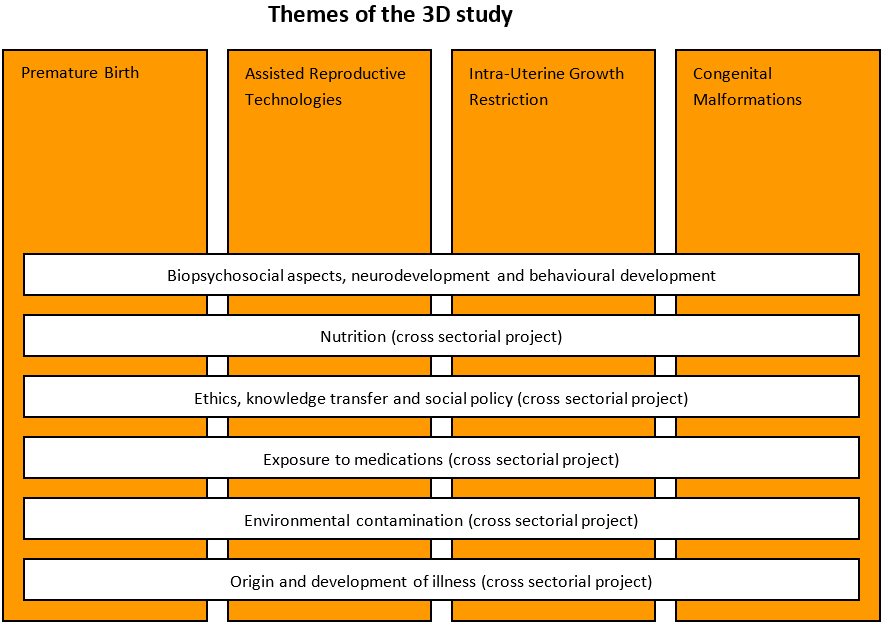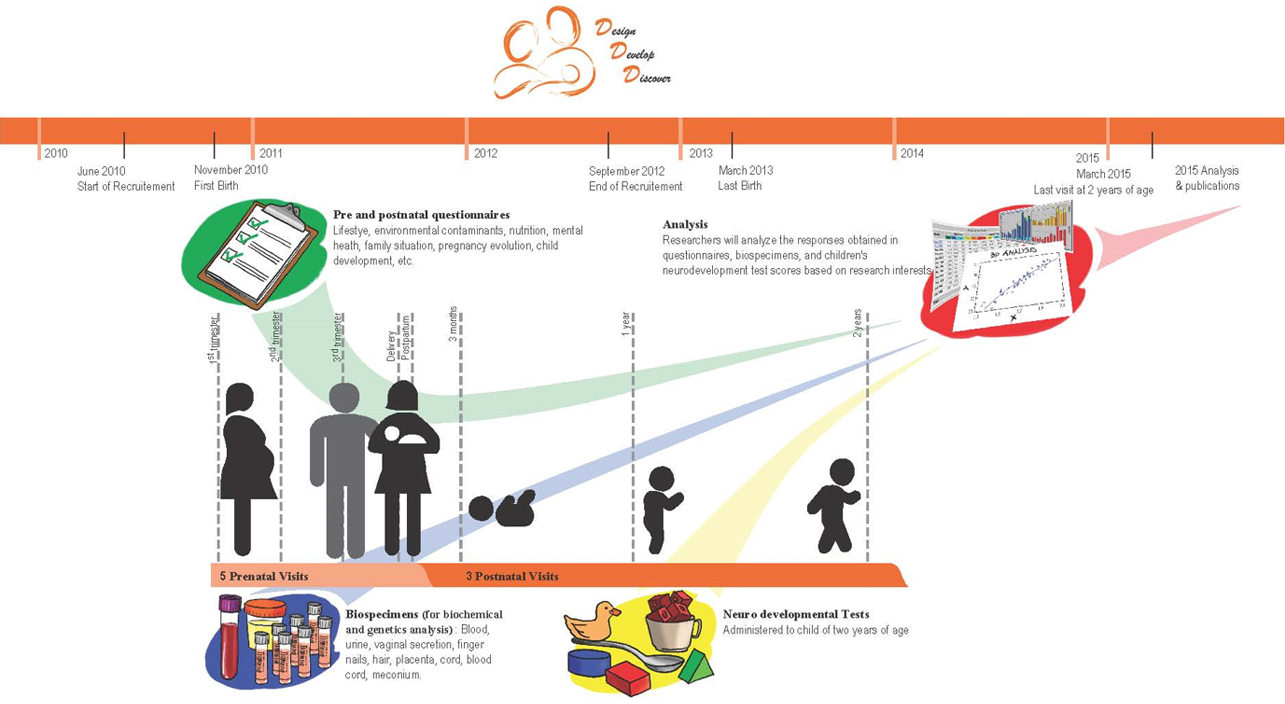Overview of the 3D Study
3D (Design, Develop, Discover) Study
 The perinatal period, which encompasses the period prior to pregnancy, the pregnancy itself and continuing up to the 24th month of the infant’s life, is a crucial moment in a human’s life. This period is often referred to as «the first 1000 days ». Studies have shown that good mother and child health during this period considerably reduces health problems during the course of the child’s life.
The perinatal period, which encompasses the period prior to pregnancy, the pregnancy itself and continuing up to the 24th month of the infant’s life, is a crucial moment in a human’s life. This period is often referred to as «the first 1000 days ». Studies have shown that good mother and child health during this period considerably reduces health problems during the course of the child’s life.
This is why the 3D Study (Design, Discover, Develop) by the IRNPQEO seeks to better understand the effects of different exposures on the outcome of the pregnancy, on maternal and paternal health, and on child development. These exposures include, for example: lifestyle, nutrition, stress, employment, family situation. The interaction between genes and the environment is also of particular interest.
The 3D study is particularly interested in four main themes in perinatal research and also includes interdisciplinary projects.
In order to achieve these goals, the 3D study created a cohort (mother-father-child) which included follow up until the child had achieved two years of age. Data and biological material (samples) has been collected from participants of this cohort in order to create a data bank as well as a biological specimens bank (also referred to as biobank). This information will serve the 3D study as well as several ancillary studies that will join in as the project develops.
Development of the 3D Cohort Study
Who participated? 2 366 trios (pregnant mother, father, and newborn until two years of age)
Where? In 9 centres: 7 in Montreal, 1 in Quebec City and 1 in Sherbrooke, Quebec
The 3D Cohort Study is the « initial branch » or foundation of what we hope to be a long list of follow-up studies that will look at various aspects of the 3D children’s health as they grow up. You will find a summary of these projects under Follow-up Study and Ongoing studies.
The IRNPQEO research network and the 3D Study were funded by the Canadian Institutes of Health Research.
Researchers who have developed this study are: Fraser, William – Université de Sherbrooke; Audibert, François – Université de Montréal; Dubois, Lise – Université d’Ottawa; Julien, Pierre – Université Laval; Luo, Zhong-Cheng – University of Toronto; Michaud, Jacques – Université de Montréal; Moutquin, Jean-Marie – Université de Sherbrooke; Muckle, Gina – Université Laval; Séguin, Jean – Université de Montréal; Trasler, Jacquetta –McGill University; Tremblay, Richard Ernest – Université de Montréal; Abenhaim, Haim – McGill University; Bédard, Marie-Josée – Université de Montréal; Bérard, Annick – Université de Montréal; Bujold, Emmanuel – Université Laval; Gagnon, Robert – McGill University; Girard Isabelle–McGill University; Kibar, Zoha – Université de Montréal; Marc, Isabelle – Université Laval; Monnier, Patricia –McGill University; Simard, Marie-Noelle – Université de Montréal; Pasquier, Jean-Charles – Université de Sherbrooke; Welt Michel- Université de Montréal


